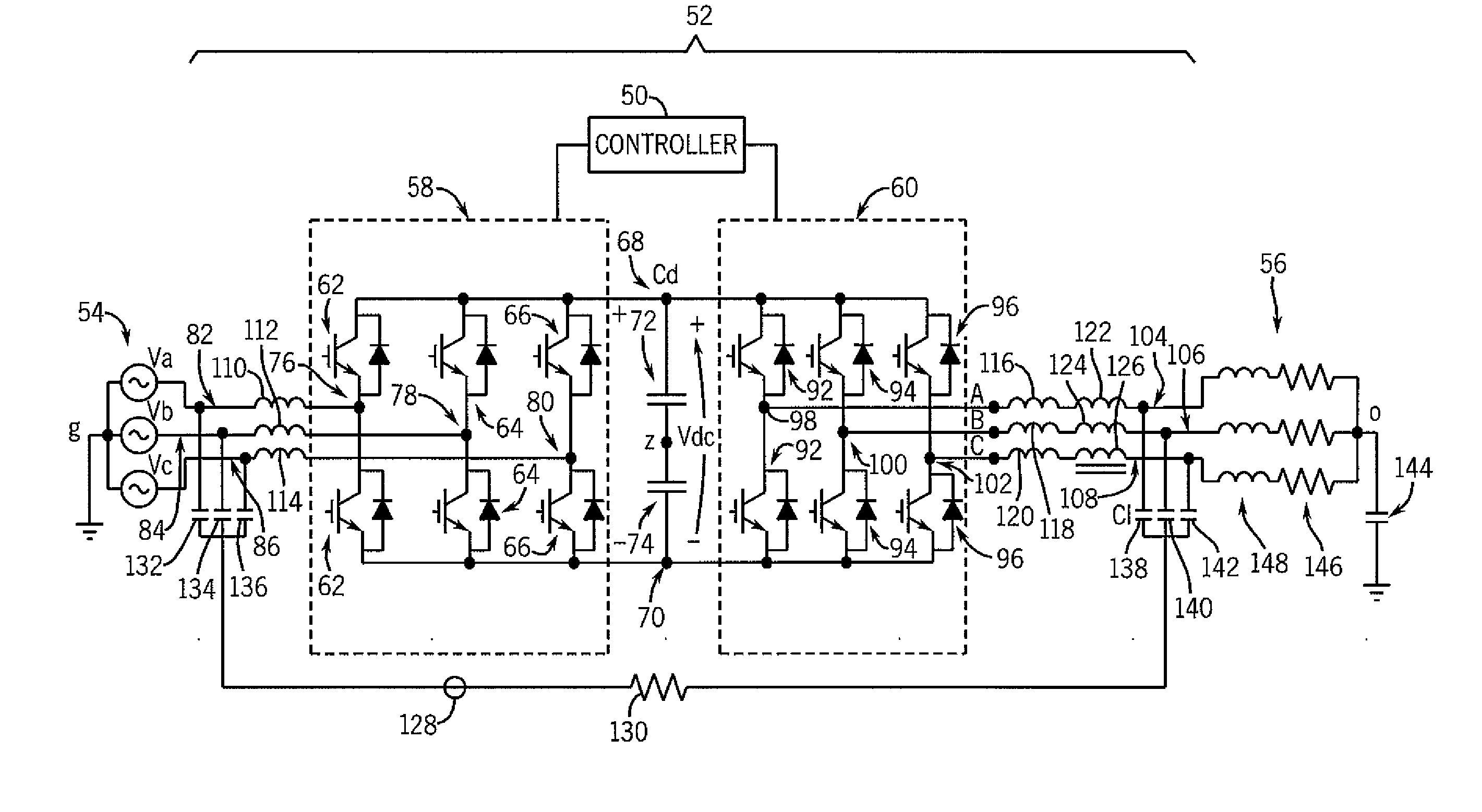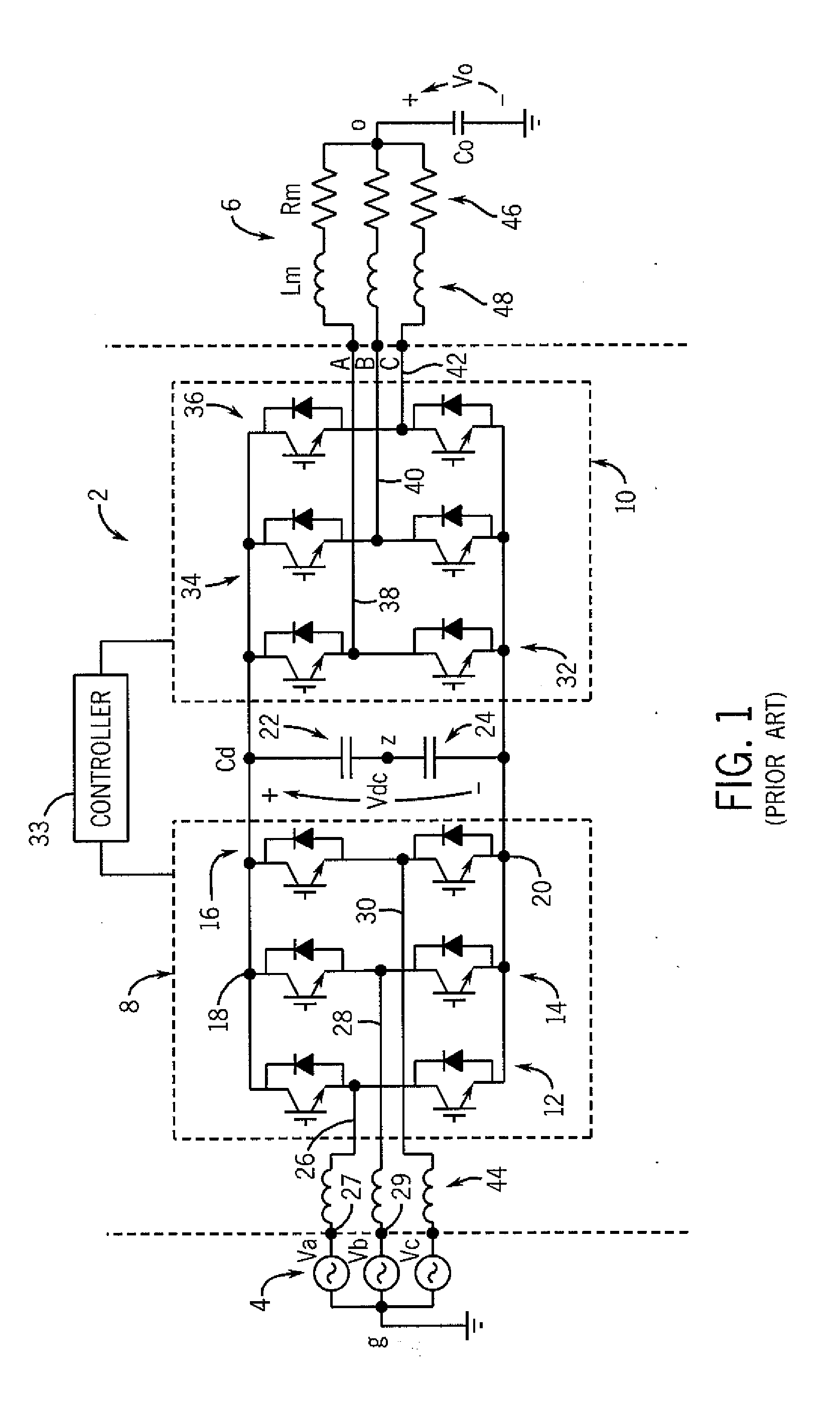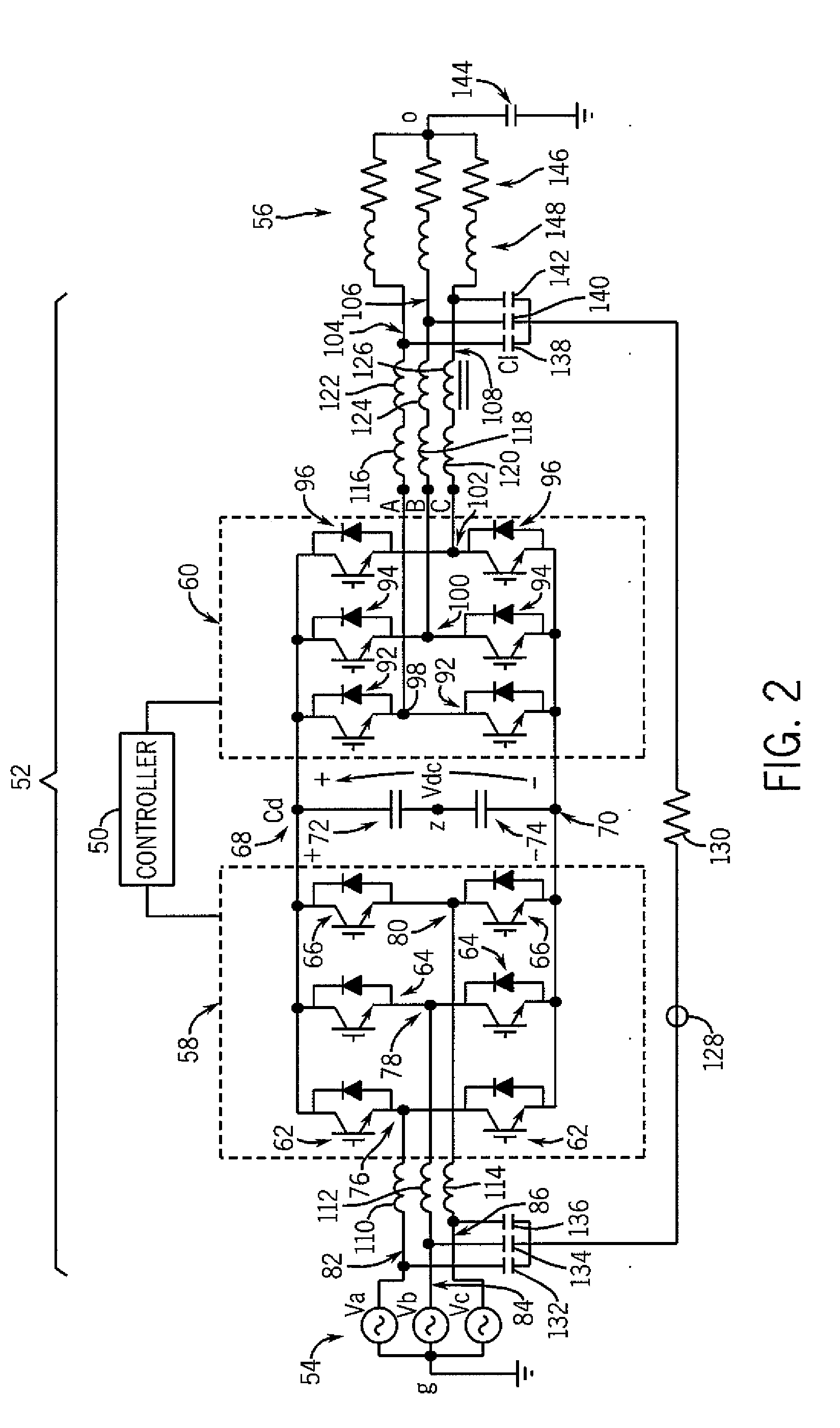Power converter with reduced common mode voltage
a power converter and common-mode voltage technology, applied in the field of power conversion devices for outputting three-phase power, can solve the problems of increasing the cost of a motor, reducing the life of the motor, and reducing the efficiency of the power converter, so as to achieve the effect of reducing the common-mode voltag
- Summary
- Abstract
- Description
- Claims
- Application Information
AI Technical Summary
Benefits of technology
Problems solved by technology
Method used
Image
Examples
Embodiment Construction
[0024] Referring to FIG. 2, a schematic is provided of a first exemplary improved power converter 52 that is coupled to a three-phase AC voltage source 54 and a three-phase load 56. In the present embodiment, the power converter 52 is a voltage source inverter (VSI) that, as described in further detail below, includes a first stage that is a rectifier 58 and a second stage that is an inverter 60. The three-phase AC voltage source 54 is intended to be representative of a variety of AC voltage sources that could provide first, second and third phases of AC electrical power to the power converter 52 including, for example, a utility / power line or other voltage source, and is modeled as three separate voltage sources Va, Vb, and Vc. In the embodiment shown, the load 56 is a three-phase AC motor (e.g., an induction or synchronous motor), and is modeled as three resistors 146 respectively in series with three inductors 148 that represent three different windings of the motor, respectively...
PUM
 Login to View More
Login to View More Abstract
Description
Claims
Application Information
 Login to View More
Login to View More - R&D
- Intellectual Property
- Life Sciences
- Materials
- Tech Scout
- Unparalleled Data Quality
- Higher Quality Content
- 60% Fewer Hallucinations
Browse by: Latest US Patents, China's latest patents, Technical Efficacy Thesaurus, Application Domain, Technology Topic, Popular Technical Reports.
© 2025 PatSnap. All rights reserved.Legal|Privacy policy|Modern Slavery Act Transparency Statement|Sitemap|About US| Contact US: help@patsnap.com



